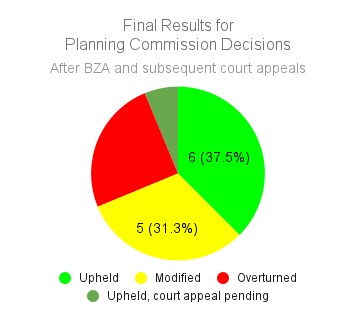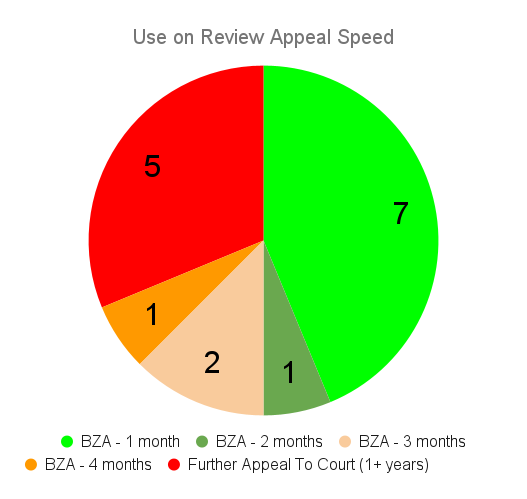Knox County Planning Alliance
Statement to Knoxville-Knox County Planning Commission on Zoning Ordinance Amendment to Change County Appeals of Use on Review (6-K-22-OA)
July 13, 2022
[This is an update of prior statements, reflecting the proposal changes that would keep Uses on Review appeals to BZA and send appeals of Development Plans to court]
Executive Summary
Knox County is considering a zoning ordinance proposal to change the appeals process for Planning Commission decisions. The amendment would:
- Codify that Uses on Review matters are first appealed to the Board of Zoning Appeals
- Change the current practice for appeals of the Development Plans. Instead of going to the Board of Zoning Appeals, Development Plans could be appealed to BZA or directly to court. If an appalent chooses BZA, the applicant (who filed the development plan) can choose to opt out of BZA and force it directly to court.
- Eliminate wording that other types of decisions without defined appeals may be appealed to the County Commission (the Law Director believes the current provision is not allowed based on prior court decisions.)
The Knox County Planning Alliance (“KCPA”) believes this proposed amendment is unnecessary, without a valid rationale, and a step backwards. We urge Planning Commission not to recommend County Commission approval of the proposed zoning amendment because:
- Removing BZA from the appeals process denies the public – community and applicants – of a long-standing opportunity for review of important decisions made by the Planning Commission.
- Providing an appeal to BZA is good policy for everybody. It helps identify any opposition before litigation. Applicants and opponents are encouraged to compromise and have more time to do so. With a full, fair, and public BZA hearing, it’s less likely either party will continue to pursue more expensive and lengthy litigation (only 5 of 16 appeals heard by BZA were then further appealed to court since 2008).
- This will not streamline and shorten the process – it will lengthen it. The BZA appeals process takes only a few months, while an appeal to Chancery Court will take about a year to obtain a decision (longer if the case is further appealed). The quicker an issue can be resolved, the better it is for the applicant and the community.
- The BZA operates with broader authority to re-weigh the factual evidence and arguments; court is very limited in review scope.
- Courts may only affirm or reverse decisions. BZA has additional authority to make modifications or impose restrictions on Planning Commission actions.
- When Development Plan appeals are directed to court, it will put appeals out of financial reach for many community members and organizations. BZA is much more financially accessible to planning applicants and community members than litigation in court, which can easily cost tens of thousands of dollars in attorney fees and court costs. While most parties at a BZA hearing choose to have counsel, representation costs are far less expensive at BZA than in courts.
- Use on Review and Development Plan appeals are infrequent and not gumming up the development process. There have only been a modest number of appeals filed (16) in the last 15 years, and only a subset of those dealt development plans. Eleven of those (69%) were resolved at BZA within a few months, without going to court.
- Development Plans are required in at least seven (7) different zones, but the Administrative Process and Requirements for the Development Plans differ widely across zones. In some zones, such as Shopping Center, there are no requirements for what a Development Plan must show or how it is to be evaluated. Instead of meddling with the appeals process, we should be clarifying the requirements for Development Plans – make them objectively quantifiable – so that applicants, residents, and Planning Commission know how to evaluate and measure those requirements. Table with list of Development Plan Requirements
KCPA supports initiatives that should reduce the number of appeals being filed and improve the effectiveness of BZA.
- Amend the proposed zoning ordinance with some suggested changes that codify Development Plans are appealed first to the Board of Zoning Appeals
- Planned Residential (“PR”) The Planning Commission began a comprehensive review of the PR zoning ordinance in 2021, but those efforts were stopped due to the Advance Knox process kicking off. This review should not be put on hold for the next year or longer. Updates should also clarify how development plans are reviewed, and if they are appeal-able to a local body.
- Requirements for treatment centers and related uses. Such uses could be codified as use-by-right. The City of Knoxville recently did this, adopting clear and prescriptive criteria for location and requirements. These facilities provide urgently needed services for our community.
- Adopt minimum attendance requirements for county appointees to all boards and commissions, in order to foster smooth functioning of these boards.
Conclusion: Removing the BZA from the Development Plan appeals process will lengthen the time to resolve many appeals (court is slower than BZA, and BZA decisions are final 69% of the time). Requiring an appellant to file with court will put the appeals process out of reach of many neighborhood and community organizations due to the financial costs.
A local appeals process needs to be kept in place for Uses on Review and Development Plans before they are sent to Chancery Court. The local appeals process needs to have ‘de novo’ review authority to re-weigh all of the evidence and arguments, and authority to modify Planning Commission decisions – not just affirm or overturn. The Knox County Board of Zoning Appeals has been doing a good job for the community and applicants in resolving Use on Review appeals quickly and fairly for all parties. The current appeals process to BZA should be left in place, and the zoning ordinances (such as Planned Residential) should be updated and clarified.
Rationale Provided by Resolution Sponsors
Sponsors stated that eliminating BZA from the appeals structure removes an unnecessary step in the development approval process and is necessary to address the housing crisis. The sponsors claim that BZA has only overturned 1 or 2 Planning Commission decisions in the past 15 years.
KCPA Position – the Benefit of Local ‘de novo’ Review
Sixteen (16) appeals of Uses on Review or Development Plans have been heard by BZA since 2008. (2 additional filings were withdrawn by the applicant before hearing, and one filing the County included in their data was an appeal of an administrative official’s decision, not an appeal of a Use on Review decision.) The agenda items do not differentiate if there was only a Development Plan involved, only a Uses on Review, or both.
 KCPA asserts that sending these appeals to a local board first, with ‘de novo’ hearing authority, benefits community and applicants. Removing this appeal authority deprives everybody of the opportunity to thoroughly examine our most complex and nuanced planning issues.
KCPA asserts that sending these appeals to a local board first, with ‘de novo’ hearing authority, benefits community and applicants. Removing this appeal authority deprives everybody of the opportunity to thoroughly examine our most complex and nuanced planning issues.
There is a need for some matters to receive additional scrutiny available with appeals to BZA. Only 6 of the 16 Planning Commission decisions appealed to BZA (37.5%) have been fully affirmed by BZA and subsequent trial courts. Nine (56%) of appealed Planning Commission decisions have been modified or overturned by BZA or ultimately subsequent courts.
BZA made minor modifications on four appeals (25%) that improved the compatibility of the use – wins for applicants and community; a fifth modification was a significant change (denial of a marina use). A court does not have authority to modify Planning Commission decisions.
Speed
 There have been 16 appeals to BZA in 15 years – averaging about 1 per year. This is not clogging up the development pipeline when one considers that the Planning Commission considers 5+ UoR / Development Plan cases a month. Yes, six of the 16 appeals have occurred in the prior 24 months, but that’s statistically insignificant with the small data set of 16 cases. There were also five (5) appeals in the 24 months of 2014-2015.
There have been 16 appeals to BZA in 15 years – averaging about 1 per year. This is not clogging up the development pipeline when one considers that the Planning Commission considers 5+ UoR / Development Plan cases a month. Yes, six of the 16 appeals have occurred in the prior 24 months, but that’s statistically insignificant with the small data set of 16 cases. There were also five (5) appeals in the 24 months of 2014-2015.
The BZA achieved a final resolution for 11 of the 16 appeals (69%), all within 4 months of first appearing on the BZA agenda. This is faster than going to court; any matter that has been further appealed to court has taken more than a year (1+ years).
If all appeals are filed directly with court, per the proposal, then it is likely most of these UoR appeals would drag on for more than a year. If it was in effect for the last 15 years, then 11 additional projects would have been subject to an additional 1+year delay. This proposal is a step backwards. This proposal does not “streamline” the process – it drags it out.
Scope of Review
Unmentioned in the proposal or case file is the standard of review of an appeal at BZA versus the standard of review at court.
The Board of Zoning Appeals holds a ‘de novo’ hearing – through fresh eyes. The BZA weighs all evidence and testimony, with latitude to determine if the use is compatible, if there are adverse impacts, if there are mitigations – the exact same criteria that the Planning Commission uses. Importantly – the board can consider additional evidence from all parties. Allowing additional evidence is necessary, because the requirement to refute an applicant’s engineer is to retain another engineer and perform studies. There simply isn’t sufficient time for opposition to complete that between the public notice of an item and the Planning Commission meeting six (6) calendar days later.
An appeal to court is through a writ of certiorari. The only issues raised in such a writ are whether the lower body (Planning Commission or BZA) exceeded its jurisdiction or acted illegally, arbitrarily, or fraudulently. The court determines if there is any material evidence in the record that supports the action of the administrative agency, and courts may not (1) inquire into the intrinsic correctness of the lower tribunal’s decision, (2) reweigh the evidence, or (3) substitute their judgment for that of the lower tribunal. In short – the court operates with reduced authority than BZA.
The proposed amendment eliminates the opportunity for a local board (BZA or County Commission) to further weigh the evidence under the Knox County Use on Review standards for approval. A court has less authority to review than a local board.
Available Actions for the Appeals Body
Courts may only affirm or reverse decisions. BZA has additional authority to make modifications or impose restrictions on Planning Commission actions, useful for quickly resolving issues. In 4 of the 16 appeals raised (25%), KCPA observed that minor modifications were made to applications that improved the compatibility of the proposed use with adjacent properties. Each of these four was resolved within 75 days of the Planning Commission hearing, a desirable outcome which provided a speedier resolution than sending these to court or filing a new Use on Review appeal:
- 6-F-14-UR: modified setbacks to be more compatible with neighboring houses
- 5-E-15-UR: modified how sidewalks were required to be constructed to better fit the slopes and terrain, requested by the development applicant
- 8-D-20-UR: addressed a UoR that was approved without the required stormwater plan; added condition that stormwater plan would be provided to neighbors for comment and input
- 12-A-20-UR: addressed access to an amenity area
Cost
Representation at BZA is less costly than at court because there are fewer filings and procedures to comply with.
The sponsors stated a position that anybody can file a writ of certiorari and would not need an attorney for appealing to court. That is true – representation is not required in Chancery Court. But the saying “A man who is his own lawyer has a fool for a client” rings true. In all but one of the UoR appeals to BZA, at least one, if not both, of the parties were represented professionally, and 100% of parties who appealed further to Chancery Court were represented. Sponsors can say representation isn’t required, but historical evidence shows that parties will choose to be represented, at both BZA and Court. However, it is far less costly at BZA (anecdotally $5K-10K) than in court (in the tens of thousands of dollars).
Fairness and Equity
The proposed change impacts community members far more than development applicants. Fourteen of the sixteen (14 of 16) appeals were filed by community members/groups.
KCPA’s experience working with neighborhoods is that UoR / Development Plans appeals are often filed because the community doesn’t have time to understand the proposal and engage with an applicant between the public notice of an item and the the monthly Planning Commission hearing. Applicants meanwhile have been working on the proposal for months, and only rarely reach out proactively to the community. Any neighborhood or community association that has participated in the Use on Review / Development Plan process will tell you that the short, compressed timeframe does not feel fair to them, even when they engage early. They are simply coming up to speed far later in the application process than the applicant, or even staff.
Filing appeals to the BZA gives applicants and community members a fast, fair and community-driven process to perform a deeper review on the most controversial of cases.
Elected Representation
The argument about BZA being unelected appointees making decisions, vs. elected judges also rings hollow. The initial application for a Use on Review is voted on at the Planning Commission by unelected individuals appointed by the Knoxville and Knox County mayors to 4 year terms. BZA members are appointed to 2 year terms by the County Commission, with 1 representative in each of the 9 commission districts. BZA members are actually more representative of the electorate and accountable to elected leaders than are members of the Planning Commission. Yes, judges are elected, but only every 8 years, and they operate with a more limited scope of authority for review than BZA or County Commission.
Addressing the Root Causes of Use on Reviews
Generally, KCPA believes the appeals process is working well. However, there is always room for improvement. Nobody wants to file an appeal – appeals are costly and result in delays and uncertainty for applicants, neighbors, community, everybody. The best way to do this is to empower the Planning Commission to make better rulings through updated, clearer, and more prescriptive zoning ordinances and preserve the existing appeal process to BZA.
How do we do that? KCPA has three proposals:
- Modify the proposed ordinance to ensure that Development Plans are explicitly appealed first to the Board of Zoning Appeals, and then to court.
- Resume the update to the Planned Residential zone, which generates the majority of Use on Review appeals. The Planning Commission began a comprehensive review on this zoning ordinance in 2021, but those efforts were tabled due to the Advance Knox kick off.
- Update requirements for treatment centers and related uses. Such uses could be codified as use-by-right. The City of Knoxville recently did this, adopting clear and prescriptive criteria for location and requirements. These facilities provide urgently needed services for our community.
If reducing the number of Use on Review appeals filed, and the time to resolve them, is a priority, then KCPA asserts the above proposals are the ways to do that.
KCPA may be contacted at contact@kcpa.us
Data
Website version of the list of Use on Review Appeals and Results
